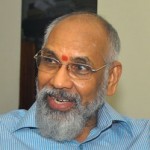Welcome To Jaffna Madam Chandrika!
“It is not enough to say war is violent and brutal. Even in war there are standards laid down internationally to be followed. Not to have followed them requires adequate after action. That is the accountability and justice our people are craving for. The reluctance of the powers that be to take adequate steps with regard to War Crimes committed and the attempt to shove the past under the carpet so to say leaves our people wondering whether the Good Governance Government is indeed interested in reconciliation and unity.”
Chief Minister Wgneswarn’s address – UNUR Economic Engagement Programme at the Conference Hall at Divisional Secretariat, Tellipalai on 25.03.2017 at 10.30 am:
Guru Brahma ………….
Hon’ Madam Chandrika Kumaratunga, Hon’ Governor, Hon’ Guests of Honour, including the Members of Parliament and Northern provincial Council, the Jaffna Government Agent, the Director General of ONUR, Distinguished Guests, High officials from Provincial as well as Central Administrations, my dear brothers and sisters,
It gives me pleasure to welcome Madam Chandrika on the occasion of the opening ceremony of the Economic Engagement Programme initiated and implement by the Office for National Unity and Reconciliation. Events are earmarked here in Tellipalai then at Chankanai, Karaveddy and Point Pedro. Many projects that are helpful to our people are being inaugurated. The construction of Primary Health Care Centre at Palai Veemankamam, construction of Fisheries Auction Centre at Chulipuram West at Chankanai, Renovation of Anaivilunthan Tank and Channel at Udupiddy South, Opening of the Rural Water Supply scheme at Polikandy South, Point Pedro are some of the events among others that are to be undertaken today by Madam Chandrika.
The works undertaken are no doubt important but quite delayed in undertaking considering the fact that eight long years have passed since the end of the war. Our people are quite conscious of the urgency of addressing the impact of the war on them and on the environment and landscape around. But at the same time they are concerned about the delay in addressing the questions of accountability and justice too.
Some of us feel and here I reflect the views and concerns of a large section of our people that there are insufficient action so far reflecting a commitment towards reconciliation. While addressing the physical economic needs and other logistical necessities it is incumbent that the basic factors that gave rise to schism among us are also addressed. Discrimination and a hegemonic attitude on the part of the Centre led to our initial disagreements and unpleasantness. It was the snowballing effect of such negative attitudes which led to violence. When violence was brought to an end with International help the means adopted at the tail end by our powers that be were dubious and brutal.
It is not enough to say war is violent and brutal. Even in war there are standards laid down internationally to be followed. Not to have followed them requires adequate after action. That is the accountability and justice our people are craving for. The reluctance of the powers that be to take adequate steps with regard to War Crimes committed and the attempt to shove the past under the carpet so to say leaves our people wondering whether the Good Governance Government is indeed interested in reconciliation and unity.
I always refer to the first improper violent act committed on or around the 5th of June 1956 at Inginiyagala. Immediate action taken irrespective of who was involved would have prevented the culture of impunity that grew to gigantic proportions later. Instead of empathizing with the victims we had sympathized the perpetrators of violence. If the Government oblivious of who committed them and against whom, identified the criminal acts and took immediate action we could have saved this Country from the impasse it went through.
That is why we have been agitating for our participation in the processes adopted for reconciliation. Reconciliation demands the participation of those affected freely and dignifiedly. Our participation does not mean our officials. They are beholder to the Centre. The political representatives of our people should be made to participate right from the beginning. Merely to look into the physical needs of our people is inadequate. Their feelings need to be assuaged.
We have been therefore critical about the preparation of the Peace Building Priority Plan Framework in that many matters that need to have been given adequate attention and importance have not been included therein. Just to refer to some –
- Our requests to bring us into the process fell on deaf ears. Even now it is not too late to include us. How would you implement the framework when the key stakeholder is not a part to it?
- The framework has no reference to War Crimes’ accountability
- There has been no reference to the inclusion of War Crimes jurisdiction into our Law
- Demilitarisation, High Security Zones, Security Sector Reforms should have been included into the framework
- The need to withdraw Prevention of Terrorism Act should have been reiterated and helped to be withdrawn
- Role of the Diaspora should have been included
- Sustainable Development Goals could have been made the corner stones of our future development
Thus the hardship of our people and their aspirations have not been adequately understood. There is a feeling of “serves them right” pervading the psyche of the powers that be. The extent to which I saw the spirit of empathy engulfing the Toronto Mayor, John Tory who visited us last Sunday, I have failed to see among our local people both Sinhalese and Tamils. Sympathy I do see.


